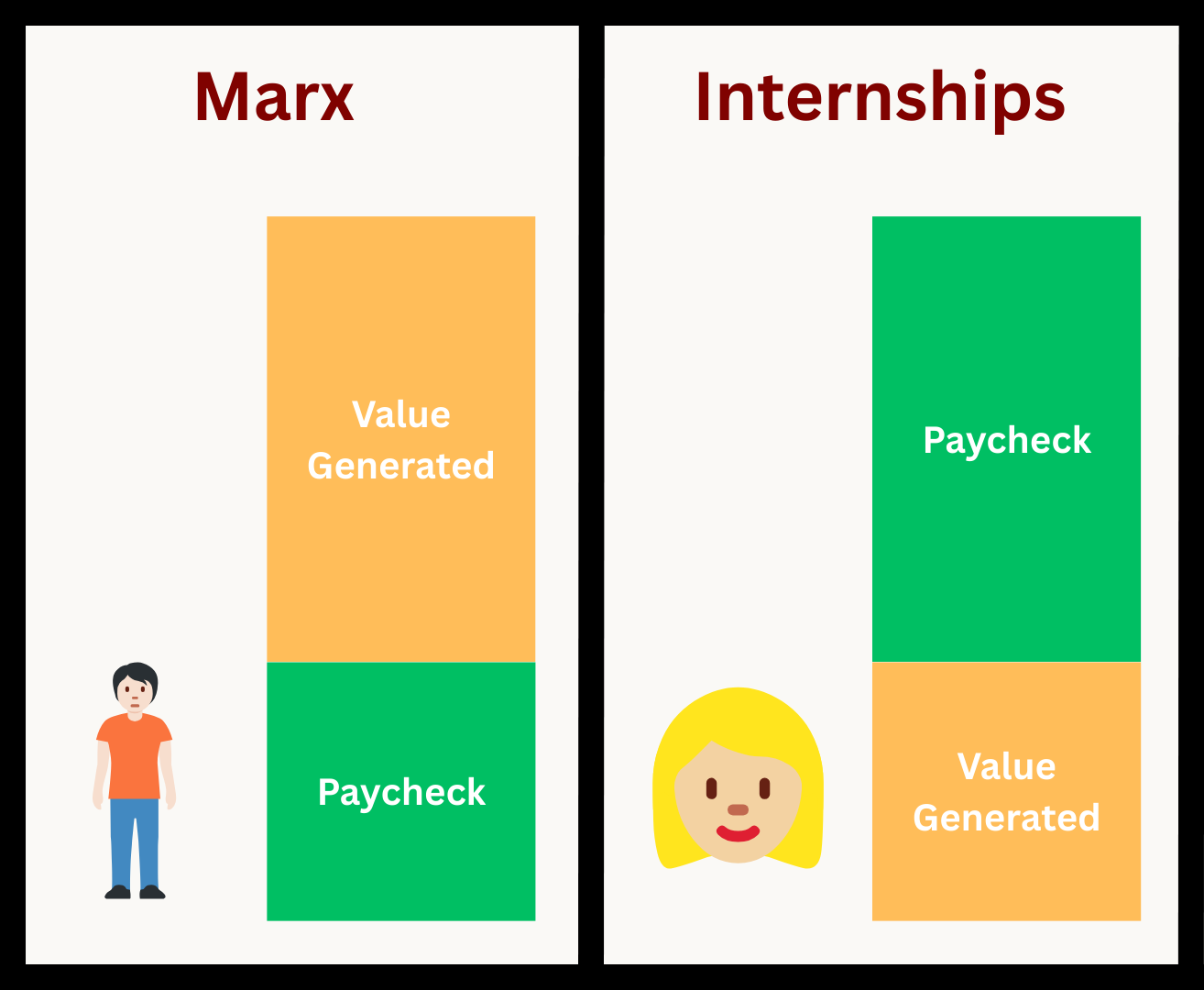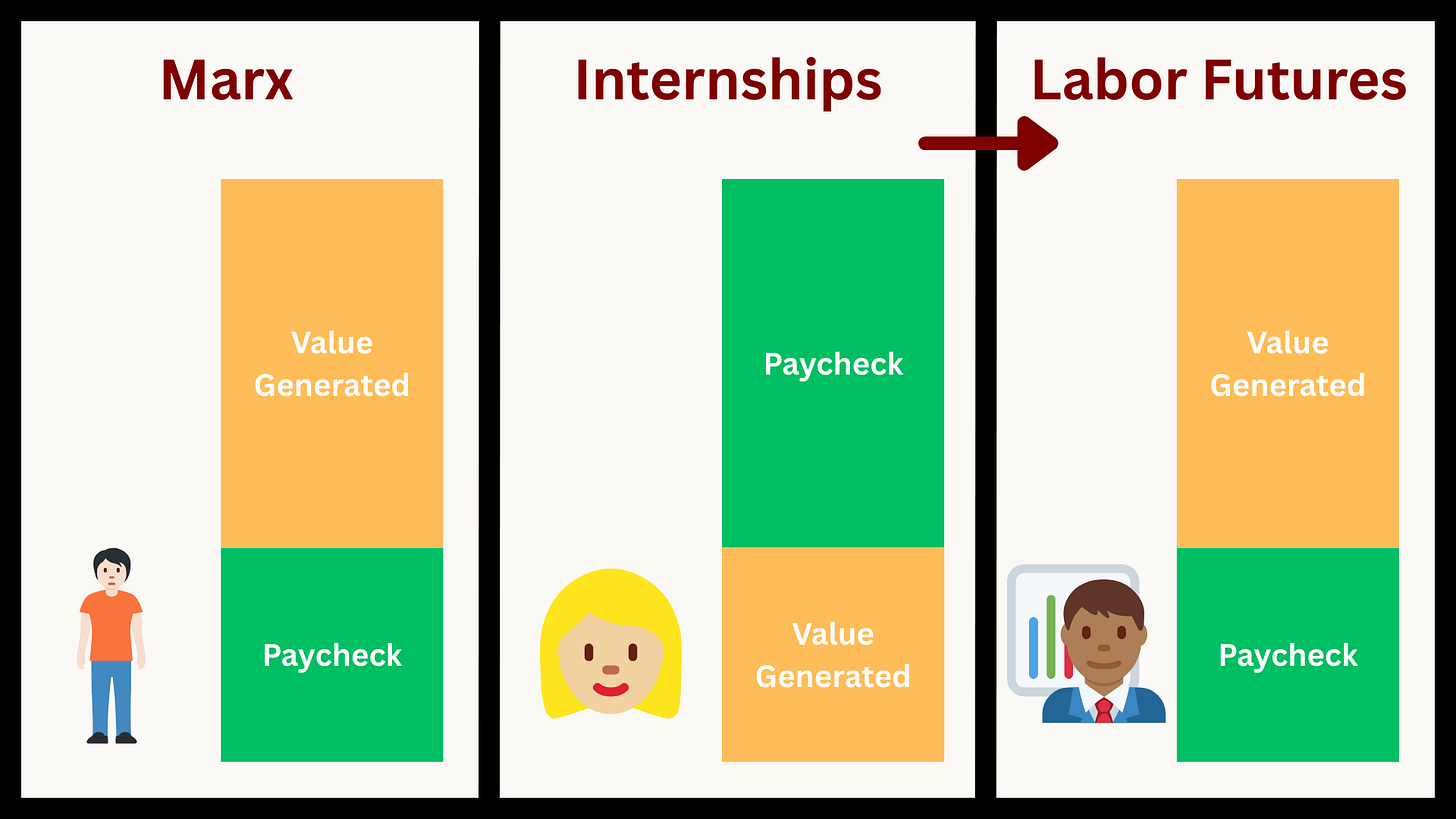AI Won't Replace Entry-Level Jobs... But It'll Change Them
What I learned from my summer in corporate HR
AI could replace 50% of entry-level jobs. But entry-level jobs aren’t actually about labor. As a 2025 college graduate who applied to 150+ jobs and internships, I’ve learned that entry-level jobs are more about talent attraction and retention. AI may not be as big of a threat as we think, but companies will have to change entry-level skills.
I (Legally) Exploited My Employer
Last summer, I landed my dream internship at Capital One. My “dream” meant flexing on LinkedIn. My co-interns were from Columbia, Brown, Vanderbilt, and more. I made money that my freshman self wouldn’t have believed. Yet…
“I don’t understand why this job pays so much. It’s so easy, anyone could do it,” one of the Ivy League interns said as we left the office one evening. We were headed to a $50 all-you-can-eat Korean BBQ dinner. Company-expensed, of course.
At the end of the summer, I had a twenty-slide PowerPoint deck to show for ten weeks of work. To me, it was clear that whatever Capital One paid me $60/hour to do, it was not to produce work.
Back on campus that semester, I learned about Marx in a political theory course. Marx argued that companies exploit laborers by paying them less than the value they produce. At Capital One, I felt like I had reversed Marx’s theory. I was paid more than I was worth.
Internships Are Labor Futures
If Capital One lost money on interns, why were there 1,200 of us? And why were we paid so much?
Capital One wasn’t paying me to crunch data and format graphs. They were paying me to not work for their competitors in big tech, consulting, or finance. And it worked. The day after I received my Capital One offer, I cancelled my interview with Adobe. The work and pay were that good.
College graduates are the cheapest labor market for companies. Experienced hires are either more expensive (hired away from competitors) or more risky (they’re unemployed).
Capital One starts to profit from me if I work there full-time. And they’ll start to make piles of money if some interns eventually stay on for decades to become executives. By hiring as much college talent as possible, Capital One is trading labor futures.
As I wrote this essay, a more troubling question came up:
Wait... Why Would Young People Choose to Work Corporate?
A mentor Zack taught me to treat jobs as opportunities to build skills, not just earn money. The company is not only choosing to hire me. I am also choosing to work for them.
So if AI can replace 50% of entry-level jobs, why would I spend years of my twenties learning skills that will be automated?
Predicting the Future of Work
I doubt that corporations will entirely go away, at least not during the next few decades of my career. We can still learn to work within the system. How can companies position entry-level jobs to still benefit them and attract young talent?
1. Manager Skillsets
In the article “The Knowledge Economy Is Over. Welcome to the Allocation Economy,” Dan Shipper predicts that managing will be a more valuable skillset than making.
“We’ll go from makers to managers, from doing the work to learning how to allocate resources—choosing which work to be done, deciding whether work is good enough, and editing it when it’s not.” Every
At Capital One, instead of learning how to format graphs or pull data from SQL, I could learn how my manager chose which project for me to work on. What did our department prioritize? How did my project fit into Capital One as a whole? What does bad data analysis look like? What made data analysis great?
Instead of knowing what to work on, I was heads-down in doing the work1.
2. Apprenticeship Model
A pilot quit her job and owed her company $20,000. Corporate jobs might start to look more like this.
Because the pilot quit before working for 18 months, she had to reimburse Ameriflight for training costs. She had spent two months learning how to fly cargo planes. These agreements are literally known as TRAPs (Training Repayment Agreement Provisions).
Given that:
Companies lose money on early employees
Entry-level labor is getting less and less valuable because of AI automation
Valuable employees will learn abstract managerial skillsets
… Companies really have to make sure that entry-level employees stay loyal, especially for longer periods of time as they learn complex skillsets.
3. Talent Density
This is a main reason I chose to work in consulting, not a media startup. Startups have fewer people and limited growth opportunities. In consulting, I work with thousands of some of the smartest business minds. The number of people is certainly an advantage of working for a large company, rather than romanticizing the decentralized internet space.
Side Note: this is one reason I chose not to work at a startup after college. In my experience, most of it is “urgent work,” rather than professional development. Both skillsets are needed, but early in my career, I prioritize learning from as many smart people as possible.



